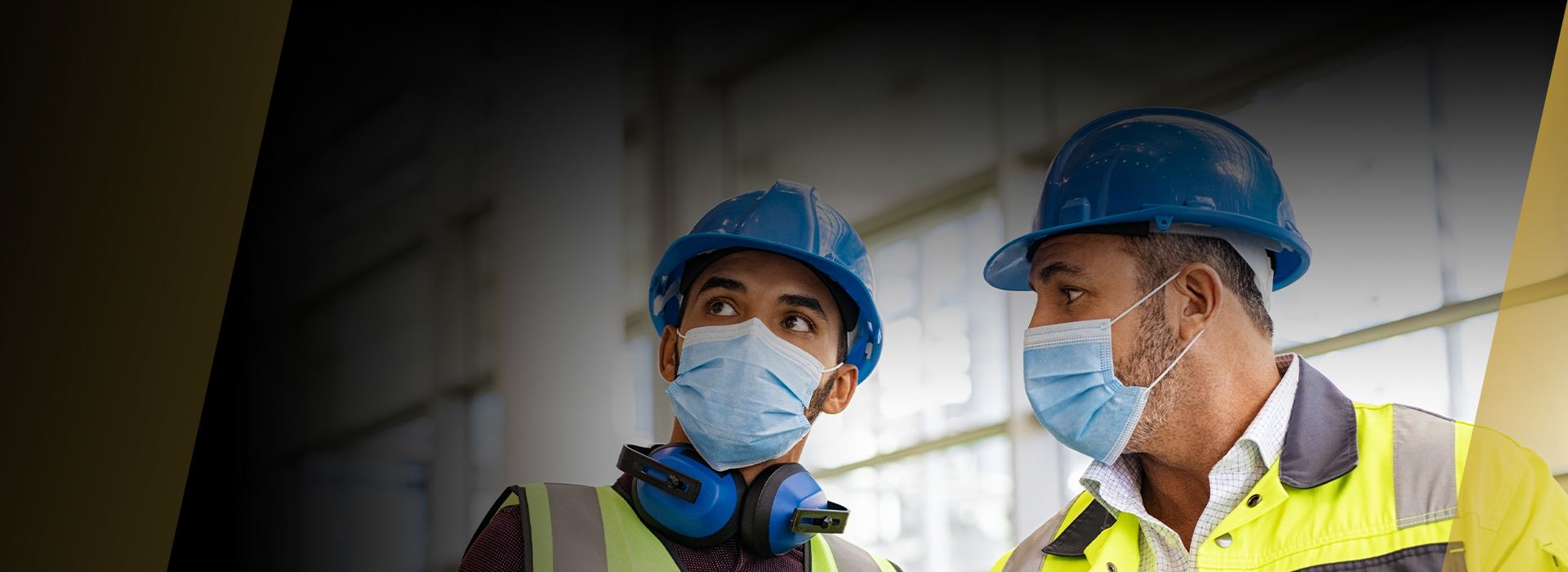
New York City Elevator Injury Attorney
Helping Workers Who Have Been Injured in Elevator Accidents in New York
Working in the elevator industry can be dangerous. Many workers are injured in falls, while others get hurt by getting caught in or between elevator parts.
At Schotter Millican, LLP, we are committed to helping elevator workers who have been injured on the job. Our New York City elevator injury lawyers understand the specific challenges that elevator workers face, as well as the complex laws that govern the elevator industry. We know how to build strong cases, and we have a proven track record of success.
For a consultation with our New York City elevator injury lawyer, call (718) 550-0610 or contact us online.
The Dangers of Elevator Work
Elevator workers face many hazards on the job. In addition to the risk of falling, they may be injured by moving parts, such as cables, pulleys, and counterweights. They may also be hurt by electrical shocks, and they may develop serious health problems from exposure to toxic substances. When an elevator worker is injured, he or she may be unable to work for a long time, and the family may suffer from a loss of income. If the injury is disabling, the worker may never be able to return to his or her previous job.
Fortunately, most New York elevator workers are eligible for workers’ compensation benefits if they are injured on the job. These benefits can help to cover medical expenses and a portion of the worker’s lost wages. However, the workers’ compensation system can be difficult to navigate, and many injured workers have their claims denied. This is why it is so important to have an experienced attorney on your side.
At Schotter Millican, LLP, we are committed to helping elevator workers recover the benefits they deserve.
Types of Elevator Injuries
There are many ways that elevator workers can be injured on the job. In some cases, the worker may be injured by a sudden accident. In other cases, the worker may develop a health problem from exposure to toxic substances. In either case, the worker may be eligible for workers’ compensation benefits.
Some of the most common types of elevator injuries include:
- Broken bones
- Head injuries
- Back injuries
- Neck injuries
- Shoulder injuries
- Knee injuries
- Amputations
- Electrocution
- Burns
- Crushing injuries
Common Causes of Elevator Accidents
While elevators are a convenient mode of transportation in buildings, they can also pose risks if not properly maintained or operated. Some common causes of elevator accidents include:
- Malfunctioning doors
- Electrical failures
- Overloaded elevators
- Mechanical failures
- Improper maintenance
It's important to be aware of these potential hazards and take precautions to avoid accidents. If you or a loved one has been injured in an elevator accident, our team of experienced workers’ comp attorneys at Schotter Millican, LLP in Brooklyn, NY, is here to help you navigate the legal process and seek the compensation you deserve.
What Should I Do After an Elevator Accident?
After an elevator accident, it is important to take several steps to protect your rights. First, you should report the accident to your employer. You should do this as soon as possible, and you should do it in writing. If you fail to report the accident, you may lose your right to benefits. You may also need to provide notice to your employer’s workers’ compensation insurance company.
Here are some other steps you should take after an elevator accident:
- Get medical attention. If you are seriously injured, you should call 911. If you are not seriously injured, you should still get medical attention as soon as possible. In some cases, the symptoms of an injury may not appear until hours or even days after the accident, and you may be at risk for serious complications.
- Follow your doctor’s orders. You should follow your doctor’s orders and go to all of your medical appointments. If you fail to do so, you may lose your right to benefits.
- Keep all of your medical records. You should keep copies of all of your medical records, as well as any other documents that relate to your injury. This includes receipts for any out-of-pocket expenses you incur as a result of your injury, such as the cost of medications or medical devices.
- Keep track of your expenses. You should keep track of all of your expenses related to your injury, as well as any income you lose. This will help you prove the value of your claim.
- Do not give a recorded statement to an insurance adjuster. You should not give a recorded statement to an insurance adjuster or sign any documents without first speaking to an attorney. Insurance companies are in the business of making money, and they will look for any reason to deny your claim.
- Do not post about your accident on social media. You should avoid posting about your accident on social media, as anything you say can be used against you. For example, if you post a photo of yourself doing anything physical, the insurance company may try to argue that you are not as injured as you claim.
- Do not accept a settlement offer without first speaking to an attorney. You should not accept a settlement offer from an insurance company without first speaking to an attorney. Once you accept a settlement offer, you may lose your right to any future benefits.
What Should I Do If My Workers’ Comp Claim For An Elevator Work Accident Is Denied?
If your workers' compensation claim for an elevator work accident is denied, you have several options to pursue your benefits. As experienced NYC workers comp lawyers for elevator accidents, we recommend the following steps:
- Review the Denial Letter: Carefully read the denial letter to understand the reasons for the denial. Common reasons may include insufficient evidence, late filing, or disputes over whether the injury is work-related.
- Gather Evidence: Collect all necessary documentation supporting your claim. This includes medical records, accident reports, witness statements, and any other evidence demonstrating that your injury is work-related.
- File an Appeal: In New York, you have the right to appeal a denied workers' compensation claim. You must file a Notice of Appeal with the New York Workers' Compensation Board within 30 days of receiving the denial. Timeliness is crucial.
- Consult with an Attorney: Engaging the services of New York City elevator work accident attorneys from Schotter Millican, LLP can significantly improve your chances of a successful appeal. An attorney can help you gather additional evidence, prepare legal arguments, and represent you at hearings.
- Prepare for a Hearing: Be ready to present your case before a workers' compensation law judge. Your attorney will help you prepare for this hearing, ensuring all necessary documents and witnesses are available.
Navigating the appeals process can be complex, but with the right legal assistance, you can fight for the benefits you deserve. Contact our team of NYC workers comp lawyers for elevator accidents to discuss your case and explore your options.
What Damages Could Be Recovered in an Elevator Injury Claim?
Potential damages may include:
- Medical Expenses: Elevator injuries often require extensive medical treatment, including emergency care, surgeries, hospital stays, and rehabilitation. You can pursue compensation for all past, current, and future medical fees that are related to the injury.
- Lost Wages: If your injuries stops you from working, you may be able to recover compensation for lost earnings. This includes income lost because of missed work during recovery and any future earnings if you are unable to return to work at full capacity.
- Pain and Suffering: Beyond the physical injuries, elevator accident victims often endure emotional trauma and a diminished quality of life.
- Disability or Disfigurement: Severe elevator injuries may result in permanent disability or disfigurement, greatly altering the victim’s life. Compensation can be sought for the lasting impact of these injuries, including the cost of long-term care, home modifications, and assistive devices.
- Loss of Consortium: If the elevator accident resulted in death or severe disability, family members may be eligible to compensation for the loss of companionship, support, and care.
- Wrongful Death: In tragic cases where an elevator accident results in a fatality, surviving family members could file a wrongful death claim to recover their damages like funeral costs, loss of income, and emotional suffering.
How Can a Lawyer Help Me With My Elevator Injury Claim?
If you have been injured in an elevator accident, you may be entitled to workers’ compensation benefits. However, the workers’ compensation system can be difficult to navigate, and many injured workers have their claims denied. This is why it is so important to have an experienced attorney on your side.
An attorney can help you with your elevator injury claim in many ways, including:
- Helping you file your claim
- Helping you gather the necessary evidence to prove your claim
- Helping you find the right doctor
- Helping you appeal a denied claim
- Helping you negotiate a settlement
- Helping you file a lawsuit
Contact Our Elevator Injury Lawyer in New York City Today
At Schotter Millican, LLP, we have extensive experience handling worker injury claims, and we have a proven track record of success. We know how to navigate the workers’ compensation system, and we know how to build strong cases. We can help you at every stage of your claim, and we will fight to get you the benefits you deserve.
To schedule a consultation, call (718) 550-0610 or contact New York City elevator injury attorneys online today.

Why Choose Schotter Millican, LLP?
-
We'll Be Your ResourceWorkers' Compensation can be confusing, but we're here to make sure you have everything you need.
-
When Others Quit, We PersistWe'll push farther for our clients - when other firms may throw in the towel, we'll dig in deeper.
-
Activism Backed With HeartWe have been involved in worker activism for decades, and we care deeply about you and your case.
-
We're Used to WinningOur attorneys have a long history of large appellate wins, so you can feel confident in our experience.
-
Videography Training for IME
You will be trained by us to know how to videotape the independent medical examinations (IME) to protect your rights.
-
We Take Complex CasesWe're not afraid of a challenge, and we'll use our experience to win even the most complicated cases.


.2203141253550.jpg)

.2203141247550.jpg)
.2203141710550.jpg)